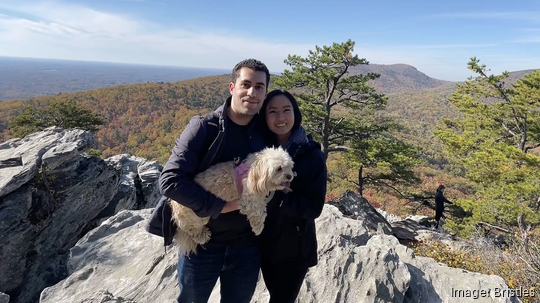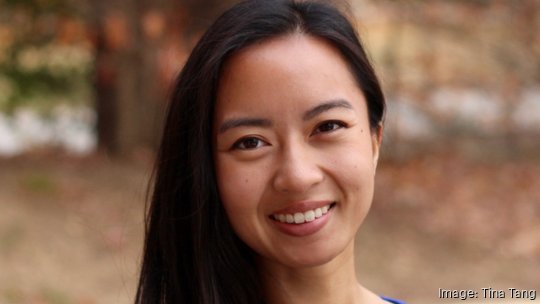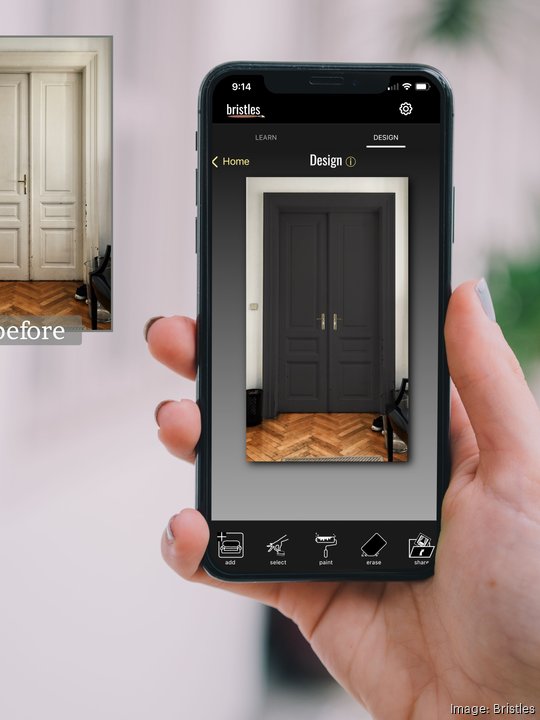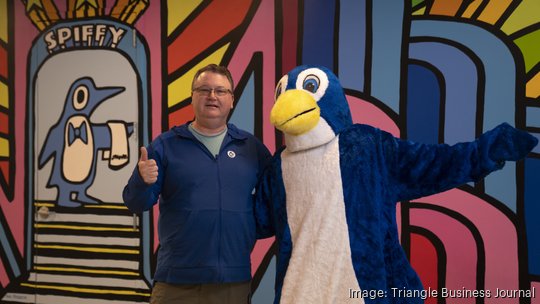
The couple behind Durham-based Bristles – an app targeted for DIYers – had no idea what they were creating when they were fiddling around with AI models in 2021 in the midst of a global pandemic.
They were technologists, but not entrepreneurs, when they moved to the Triangle.
Today, they’re scoring investments and endorsements from seasoned startup veterans as they build out an app that, if they’re right, could help you know which paint color to buy without having to do multiple test rolls all over your wall.
The story starts with a promotion.
Tina Tang was in IT consulting in Raleigh when she got promoted to associate manager, a position she’d coveted. She had moved here from Washington, D.C., to be closer to her fiancé (and later co-founder), Anthony Alers. The two met in D.C. while at Accenture (NYSE: ACN). But both wanted more. For Alers, it meant starting a Ph.D at Duke University, diving head first into computational neuroscience.
For Tang, it meant working for that promotion – or so she thought.
“Once I got it, the fulfillment I felt was just so fleeting,” she said. “I was really happy for maybe a day. And then it just dissipated.”

So she took a chance, trying to get the passion back. She followed Aler’s footsteps and went back to school full time, starting a master’s program at her alma mater, the University of Virginia. There she found a passion for machine learning and AI that would push her to start Bristles.
“It was so different from consulting,” she recalls.
At Accenture, everything was fast paced. “I never had time to think, really,” she said.
But at school, she had the time to research and “actually play around with things,” like black and white photos of Amelia Earhart and President Theodore Roosevelt released by the Smithsonian.
“I thought it would be fun to train a computer model to colorize those images,” she said. “I enjoy hacking a bunch of models together and mixing the outputs.”
Aler caught on to what she was doing, and the two talked about “how cool it would be to have something on your phone to let you put all of these images through models.”
Typically, the only people playing around with these kinds of models were machine learning engineers – particularly those who knew how to use Photoshop.
“So we started tinkering and building this app that kind of translated all of that onto a mobile device,” Tang said.
The "aha" moment
The problems were complex. And even as they were solving them, they didn’t realize what they were creating.
Translating something like Photoshop to a mobile device is limiting. There’s no mouse to make edits, and your finger is “too wide to do things precisely.” Tang created a “virtual stylus” of sorts that allowed for mouse-level control on a mobile device.
But the “aha” moment came when they actually used the app and realized what they had created.
Tang and Aler had been remodeling their home – and an argument had surfaced about paint colors in an area where they planned built-in shelves. Aler wanted dark colors, while Tang insisted neutrals were less risky. The first thing they did with their new app was test out their ideas for the space.
“And Anthony was right, darker colors actually looked better,” she said. “But we couldn’t get there without that visual.”
Without fully realizing it, they had created an app to help visual home improvement ideas.

“We started show that to people and they just got so excited,” she said. “Everyone could relate to this problem. They got it. We thought if we could build a solution for it, it could have mass market potential.”
So they took the concept and created a company.
The app itself was lean.
“When you work with only images, it’s very cheap,” Tang said.
When Scot Wingo, the entrepreneur behind Tweener Fund, came calling, she wasn’t actively raising money – but jumped at the opportunity for mentorship. The $25,000 investment “was really all we needed to start testing out our idea,” she said.
Wingo said it was an easy check to write.
“There is an explosion of AI in the generative space,” he said. “Bristles is using AI to solve a specific and prolific problem that home renovators have – visualizing their room, house, furniture, whatever projects before they start. This is so much harder than you would think, and AI breakthroughs in image processing make it possible now.”

The firm, which also won a microgrant from NC IDEA in 2021, has about eight months of runway, Tang estimates – but is in the early stages of planning a pre-seed round to keep building.
Tang said the plan is to stay in Durham, “but it all kind of depends on how fundraising goes.”
The subscription app is currently in the Apple Store and will soon launch in Google Play. Some new AI features are in the works, which could help create mockups of projects more easily – allowing clients to create realistic visuals from mood boards.
Right now, it’s targeted at consumers, but down the line the firm plans to partner with retailers.
Tang and Aler are also planning to get married.
“It’s on our to-do list,” she said.